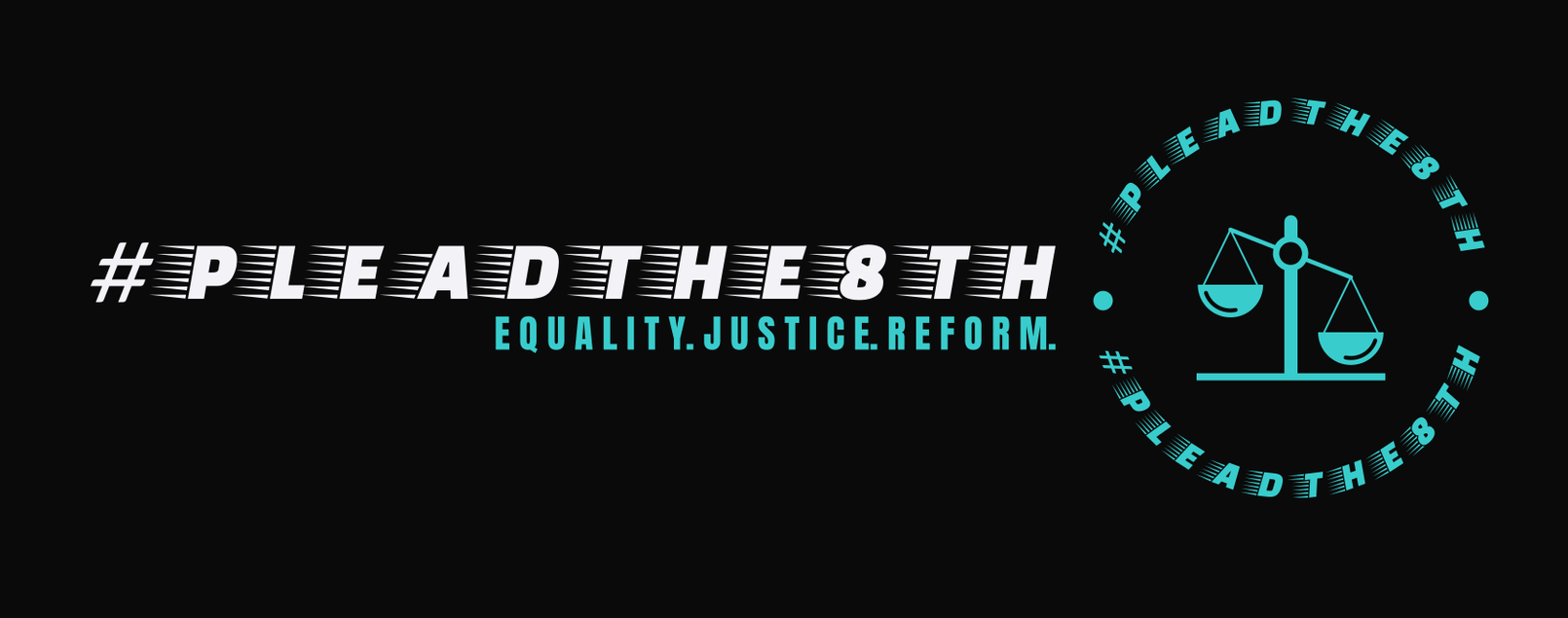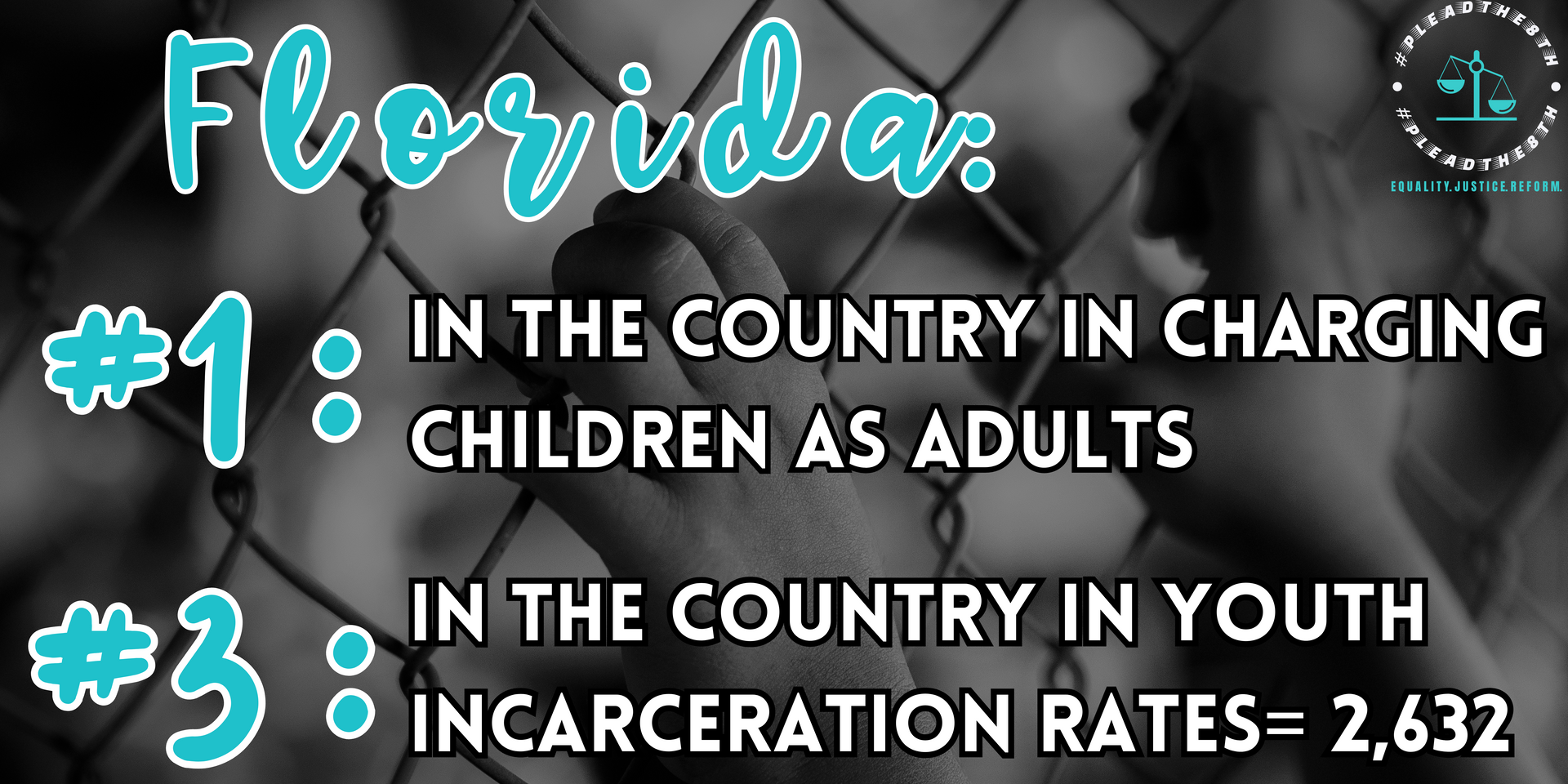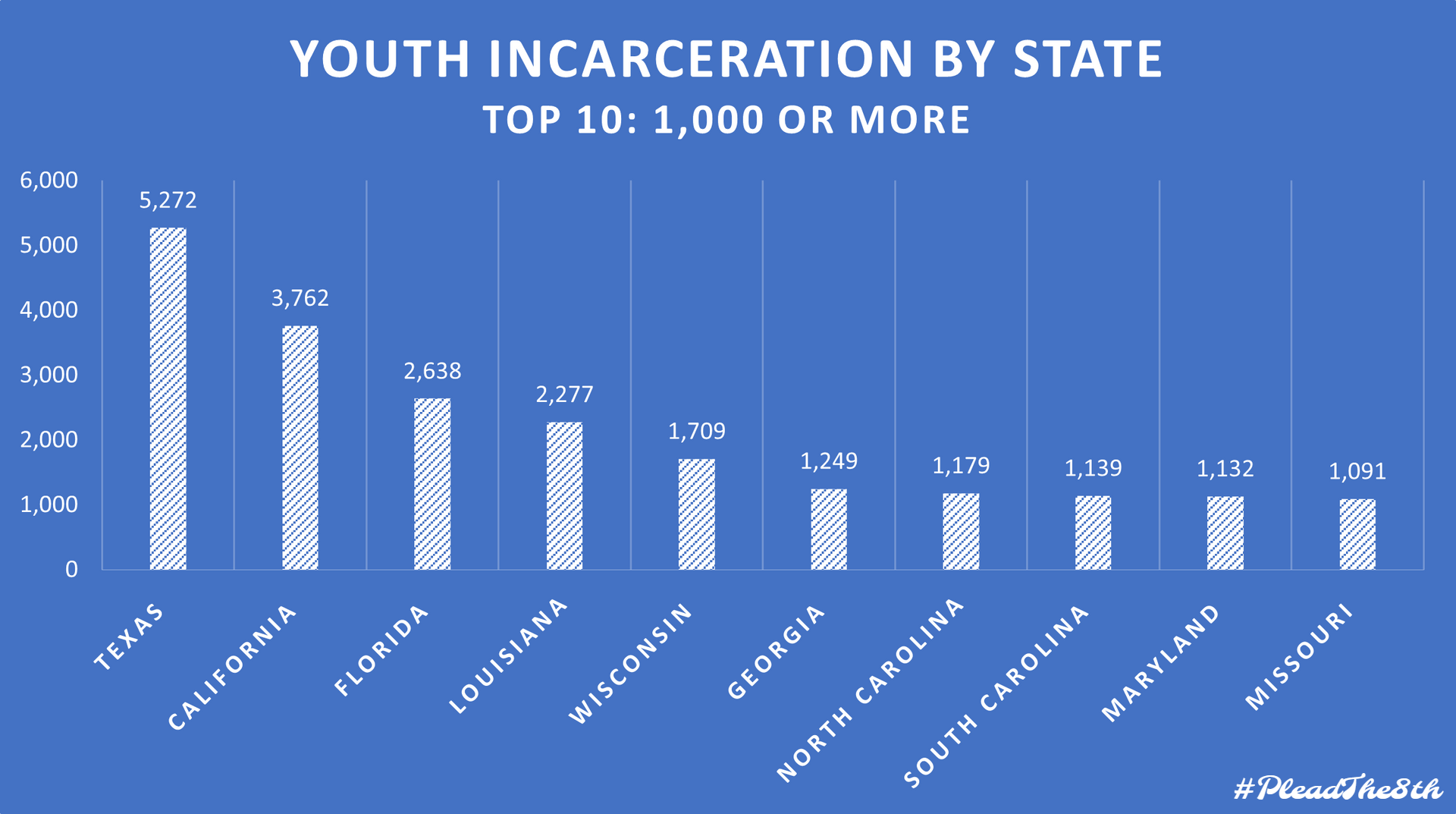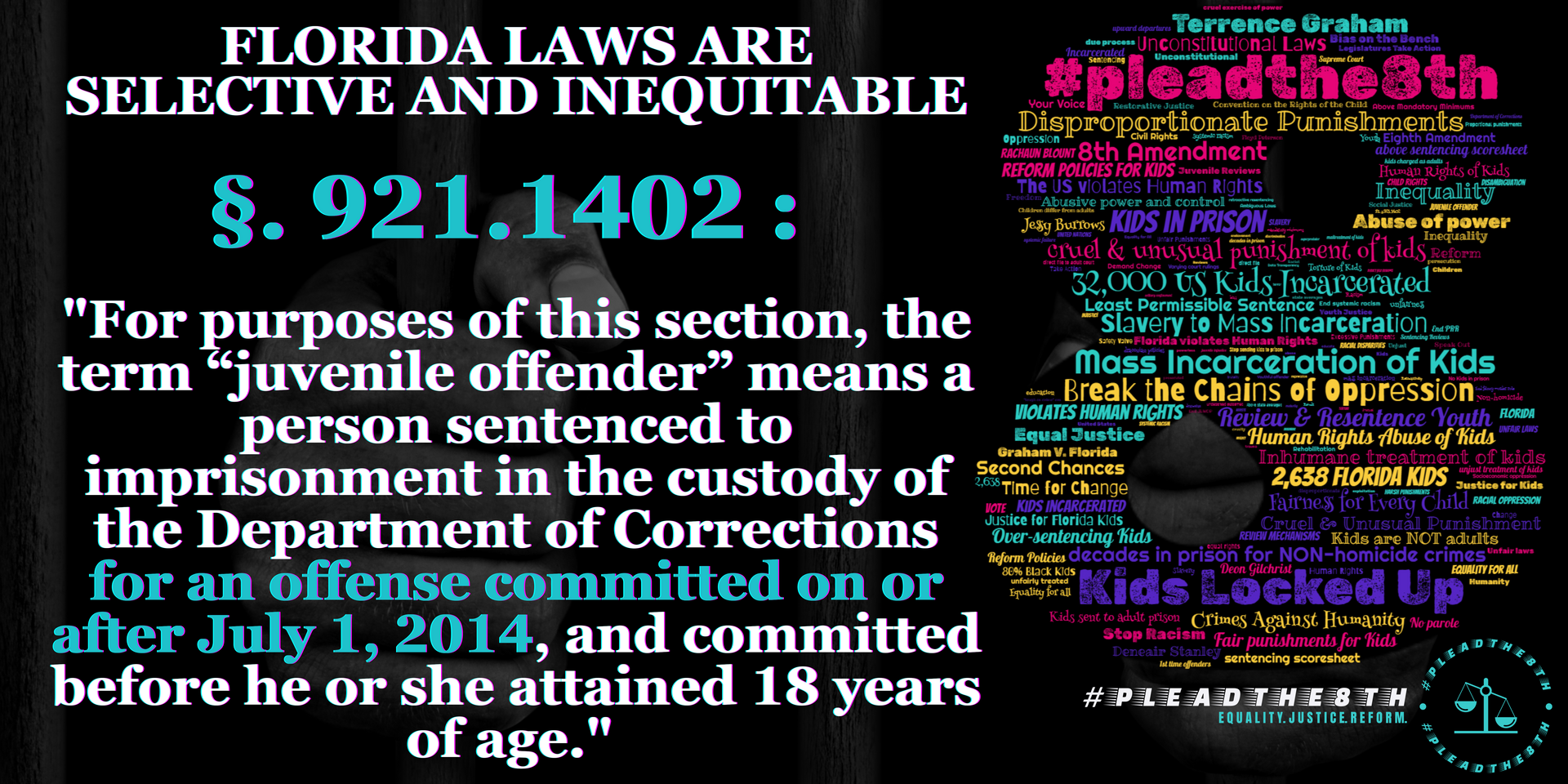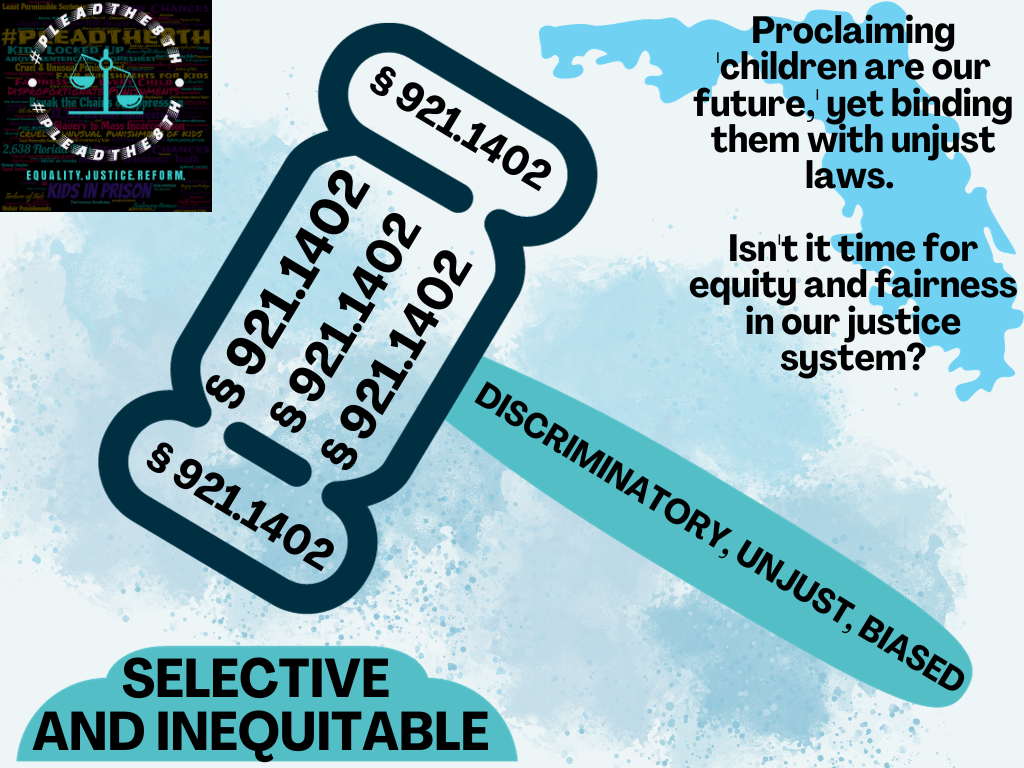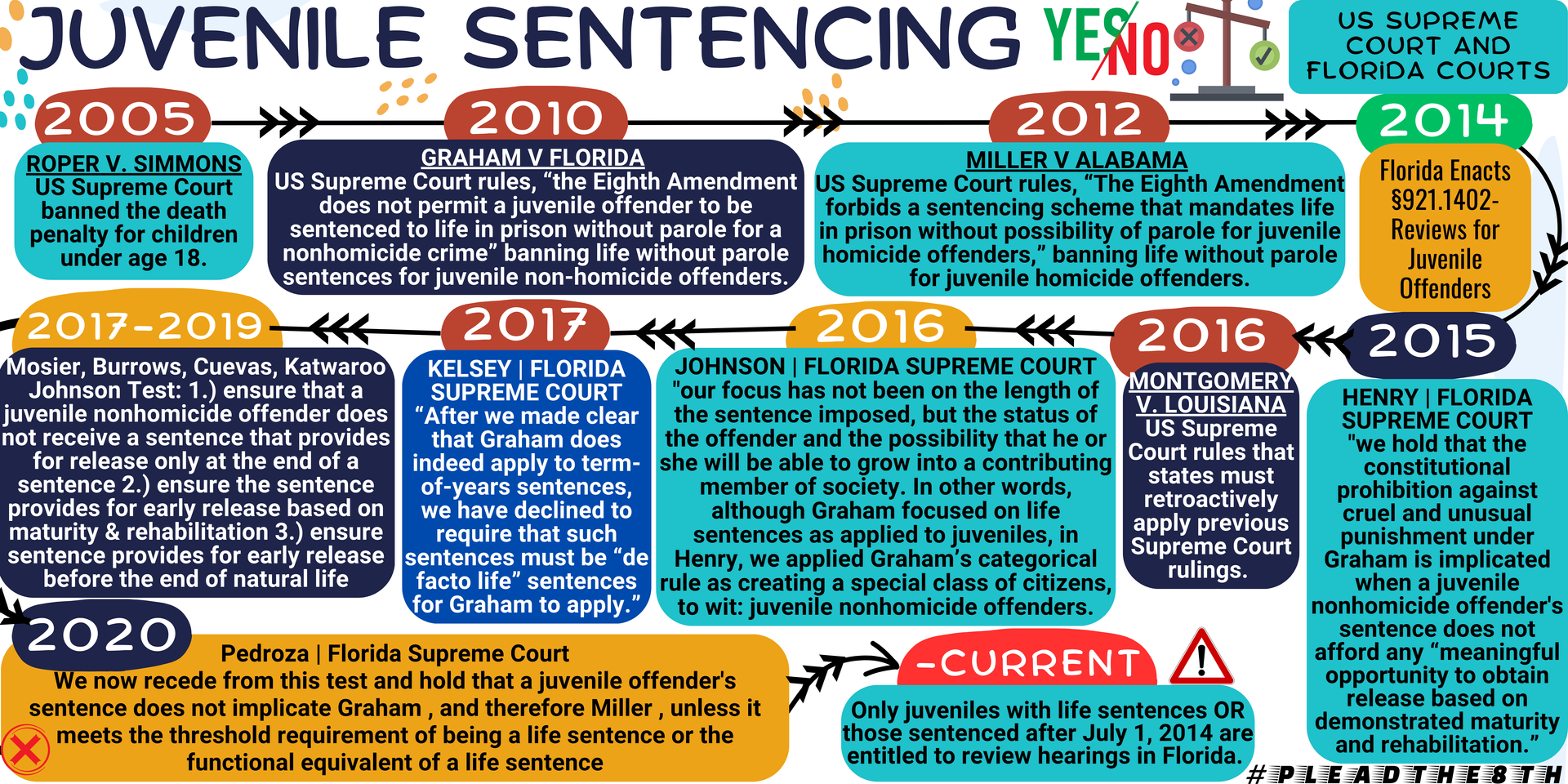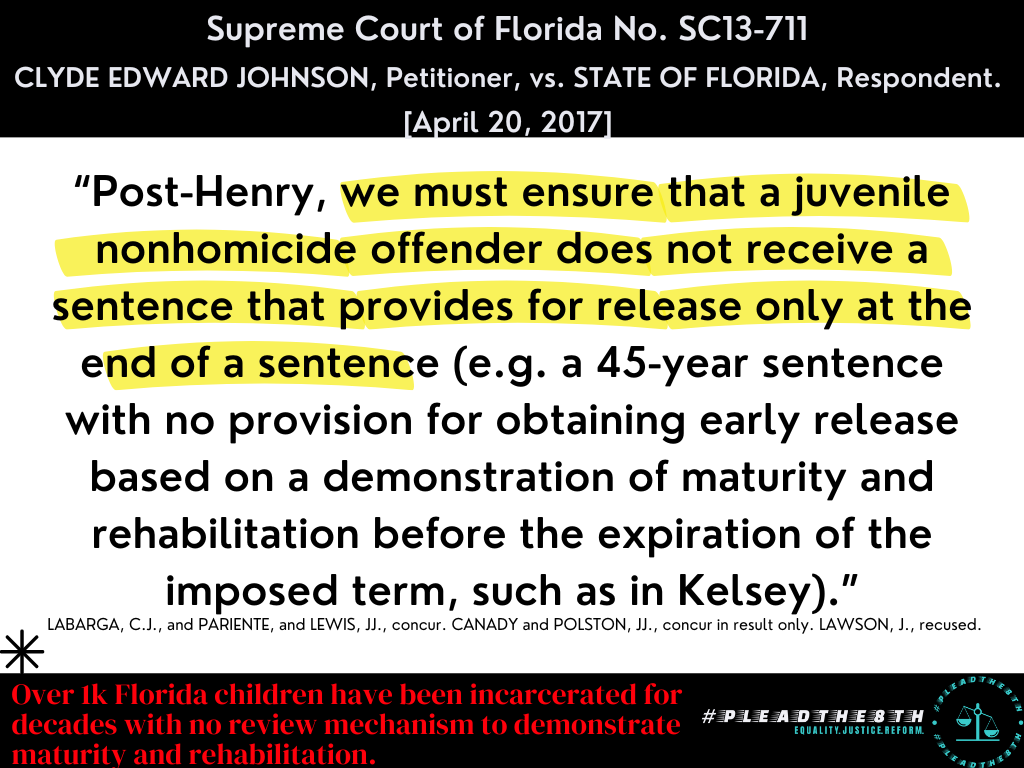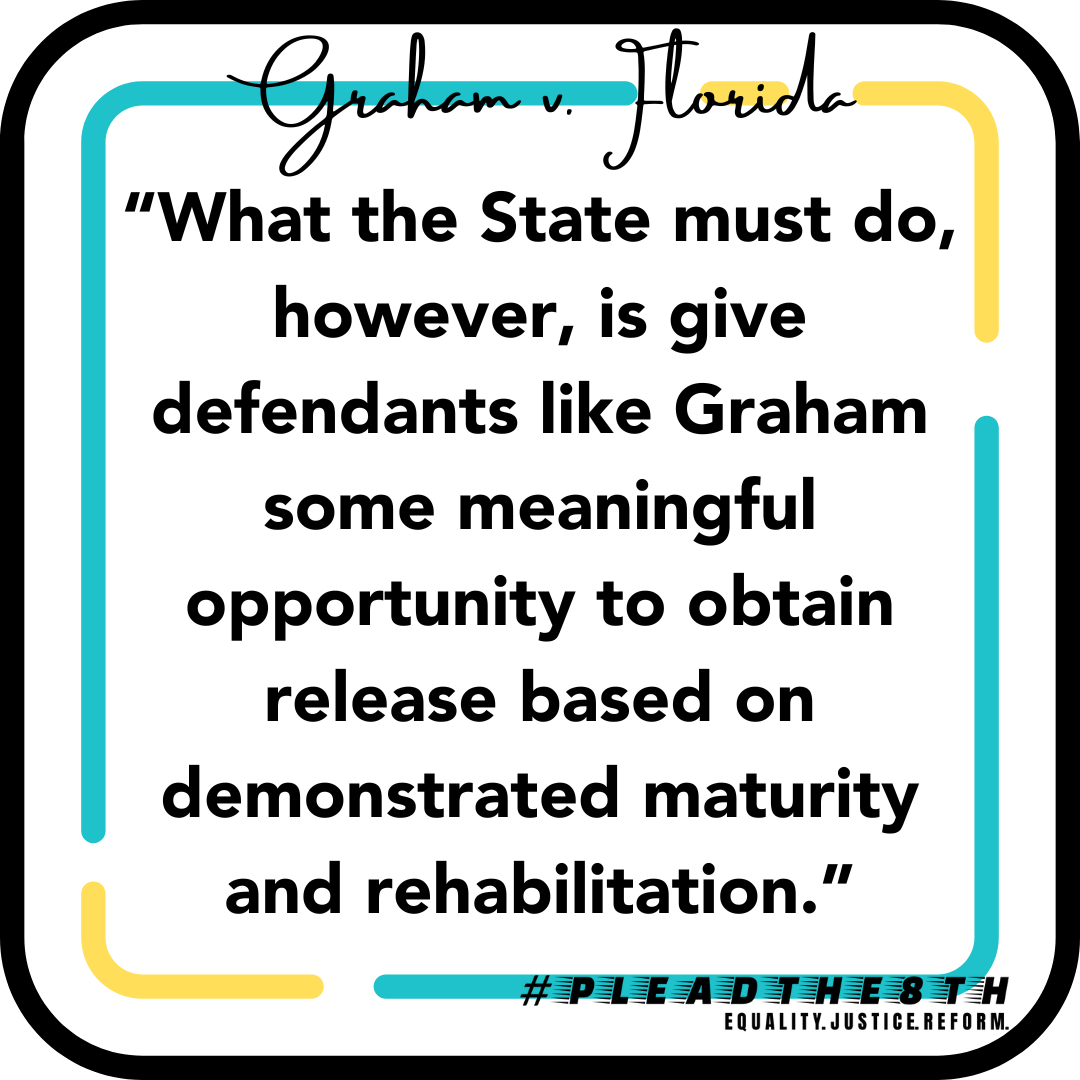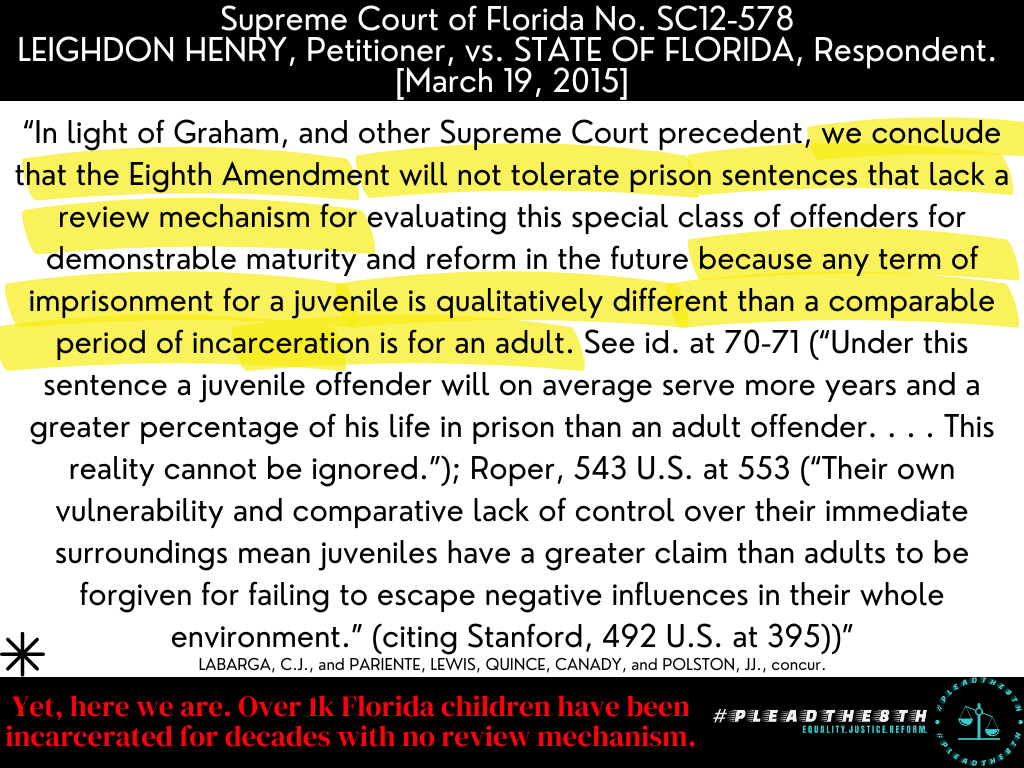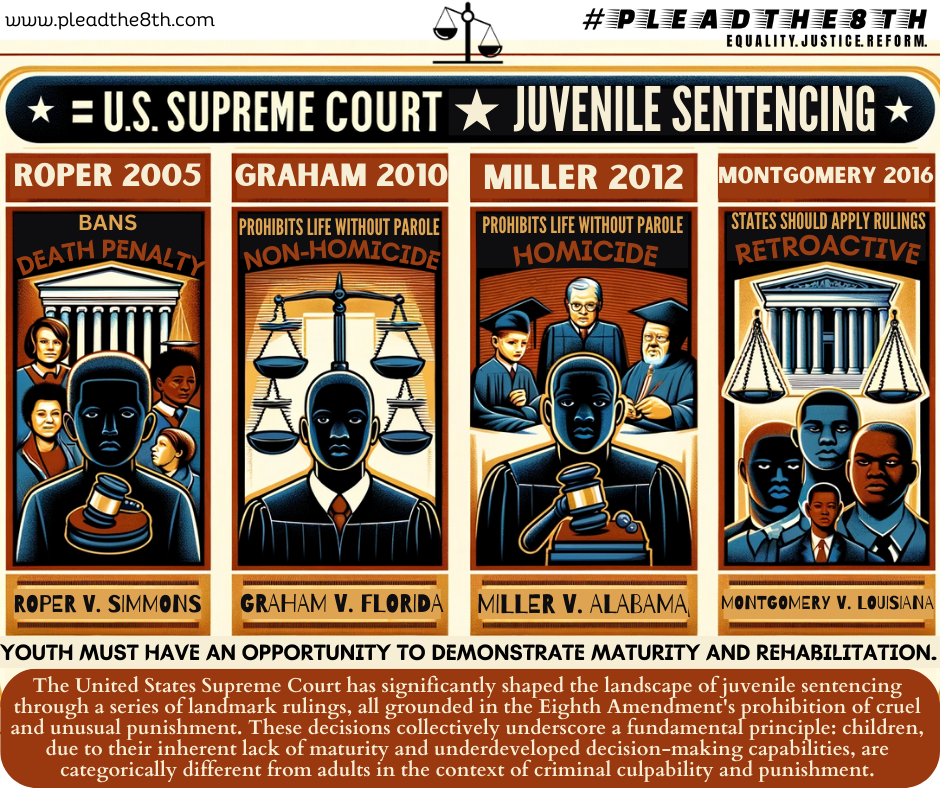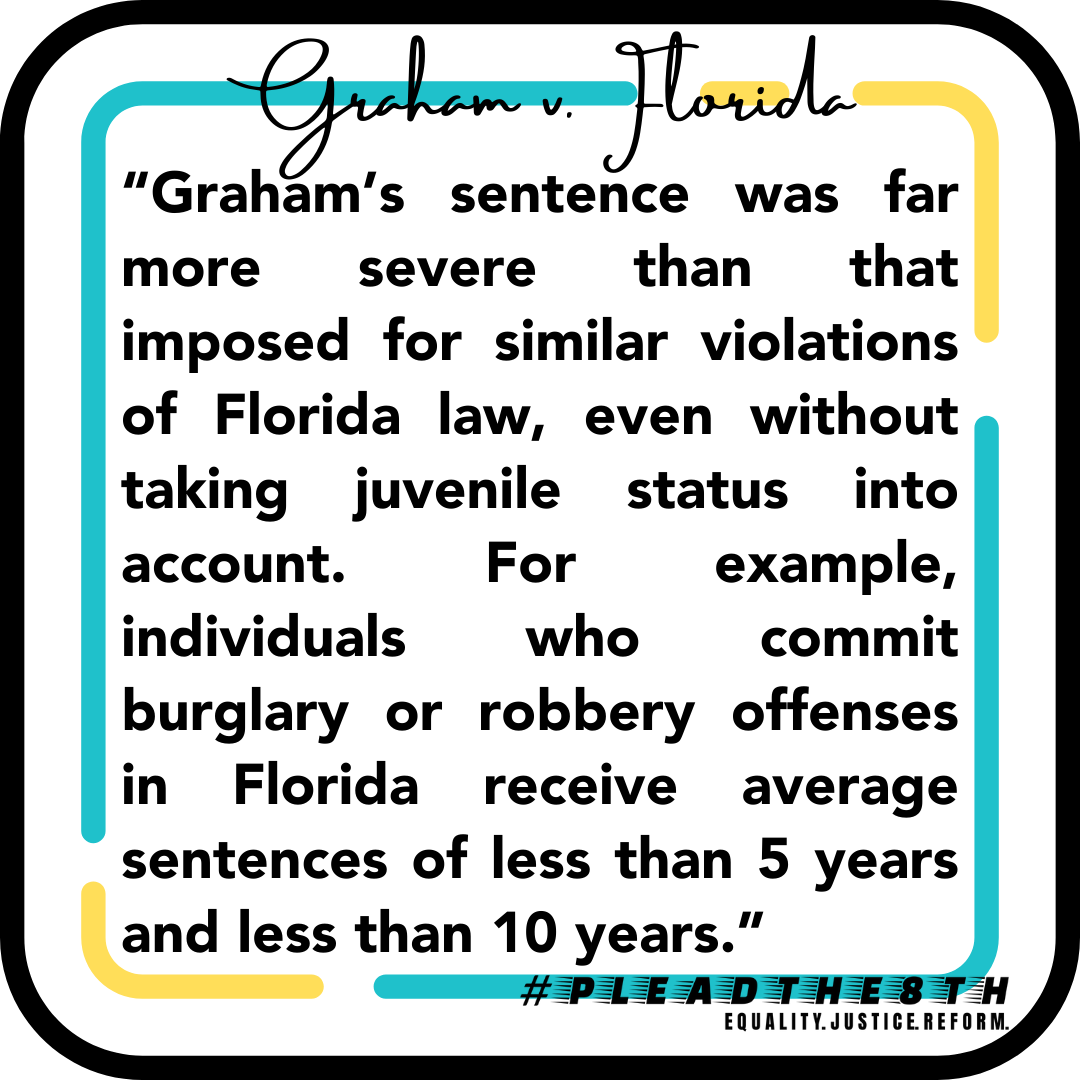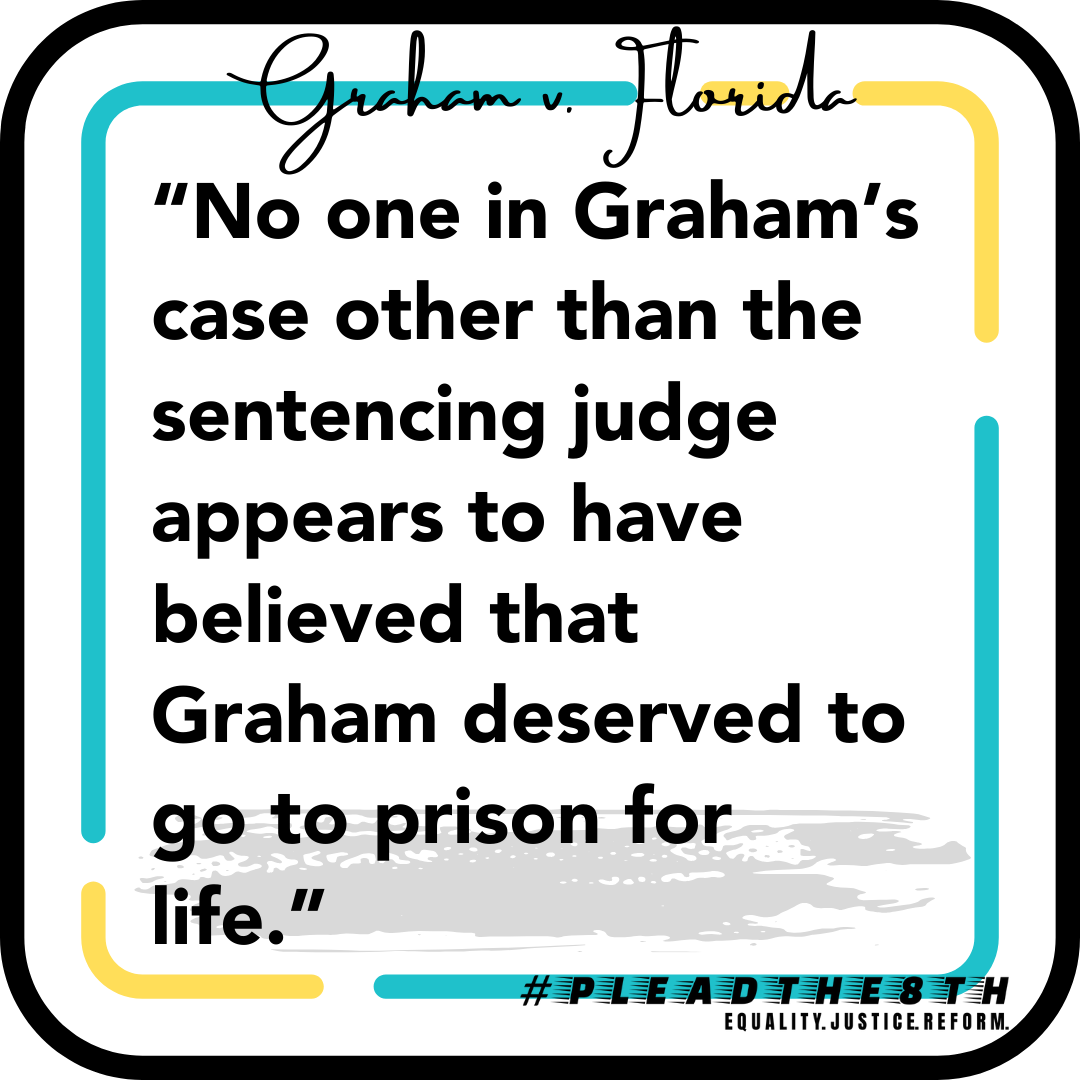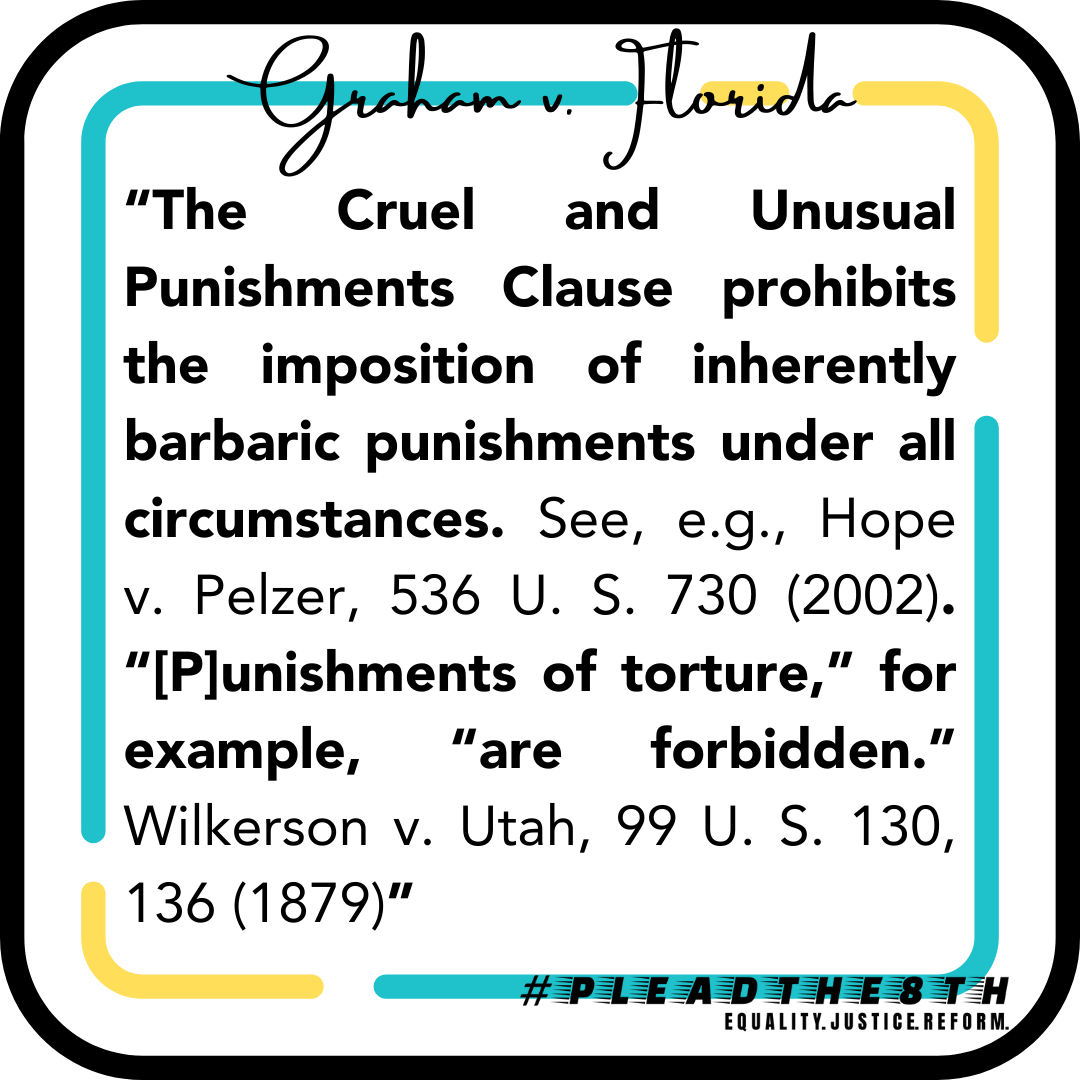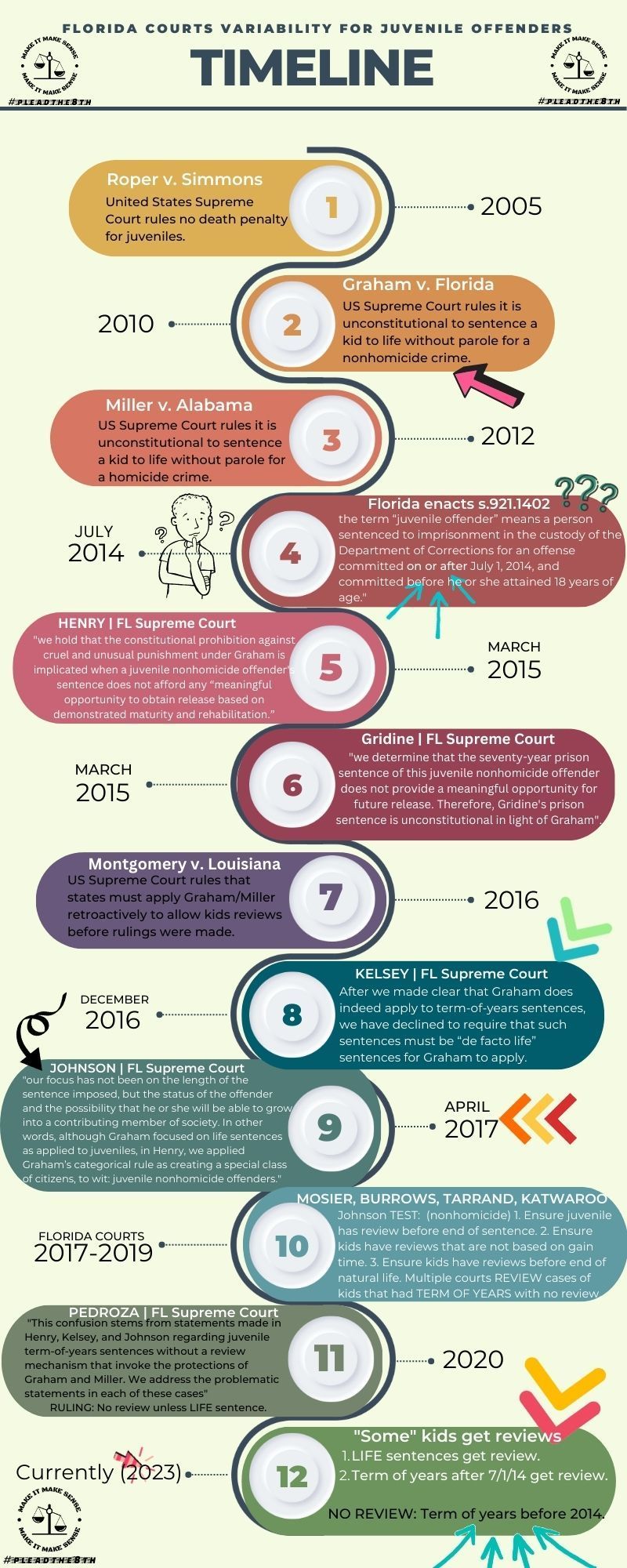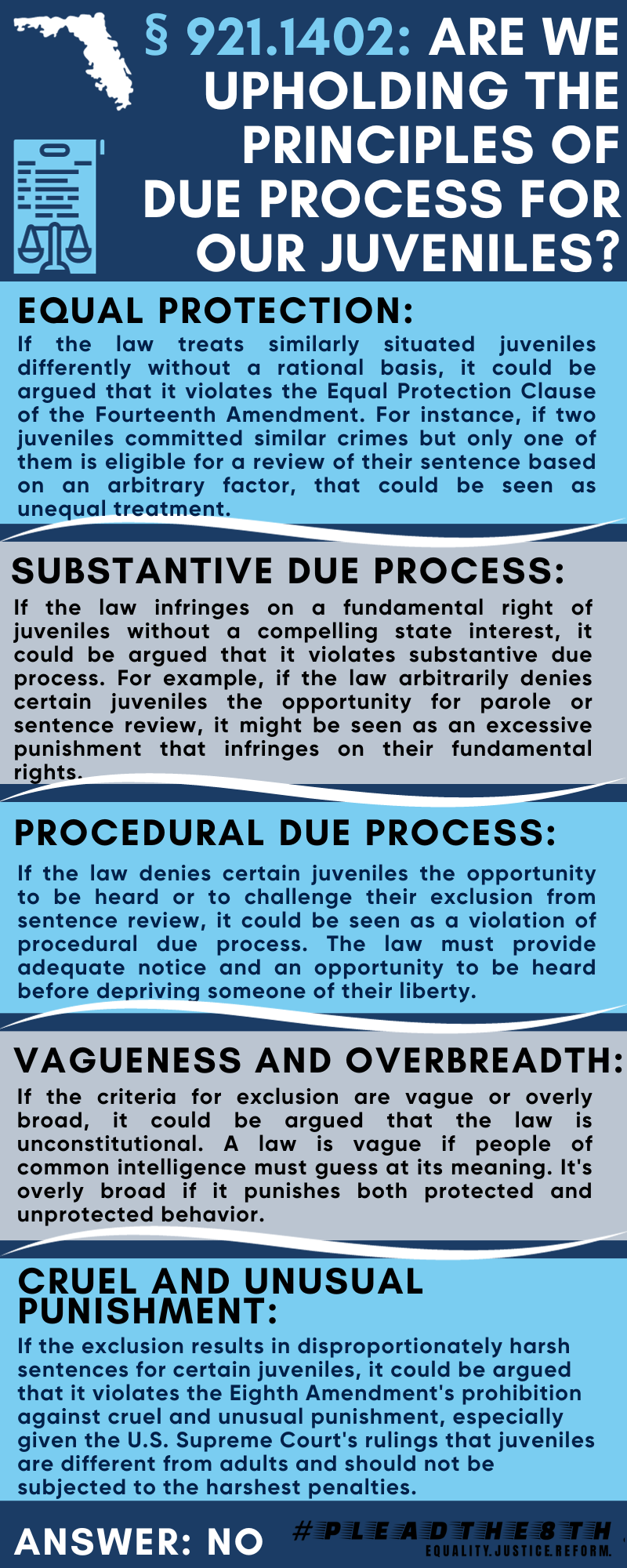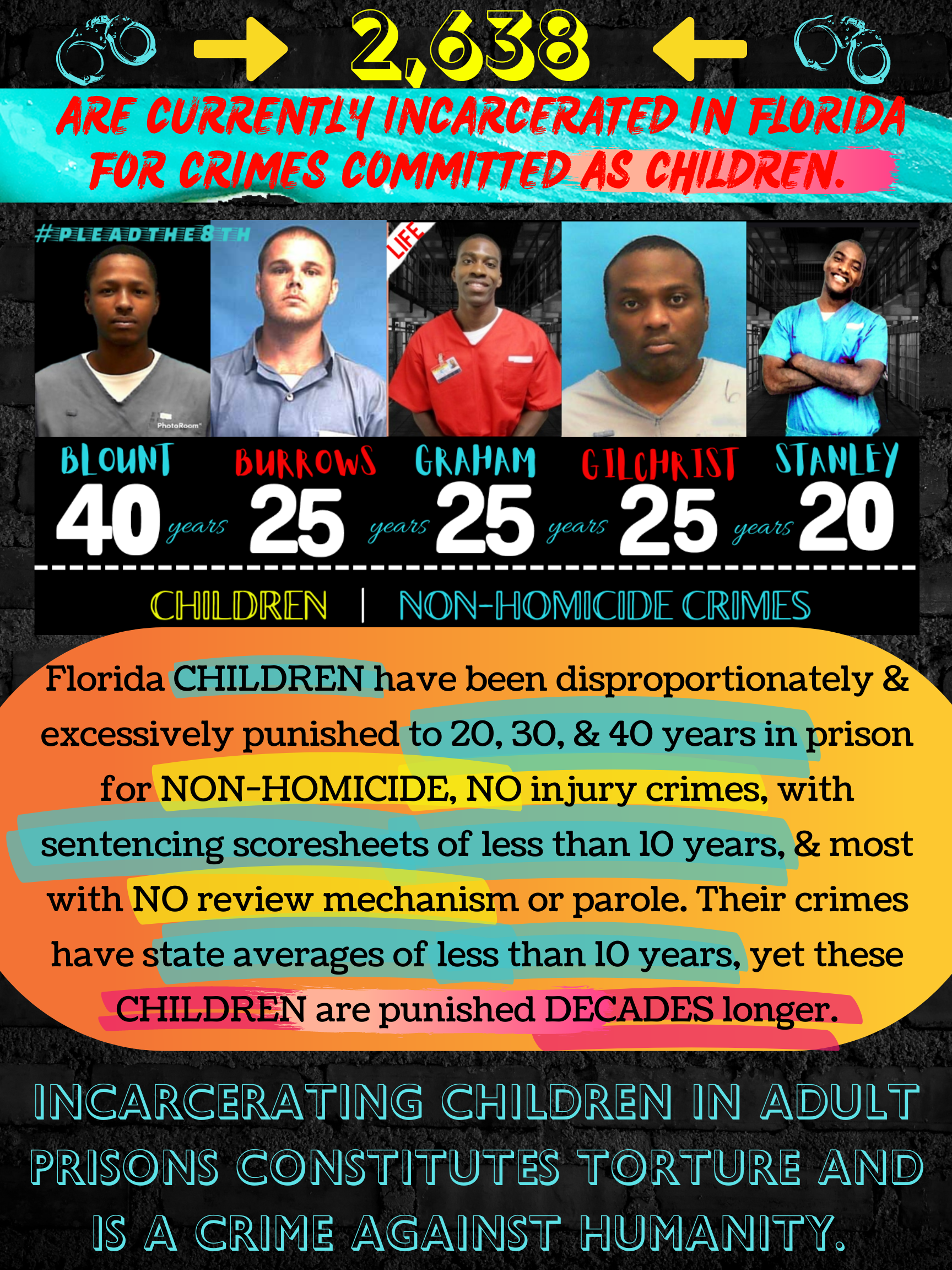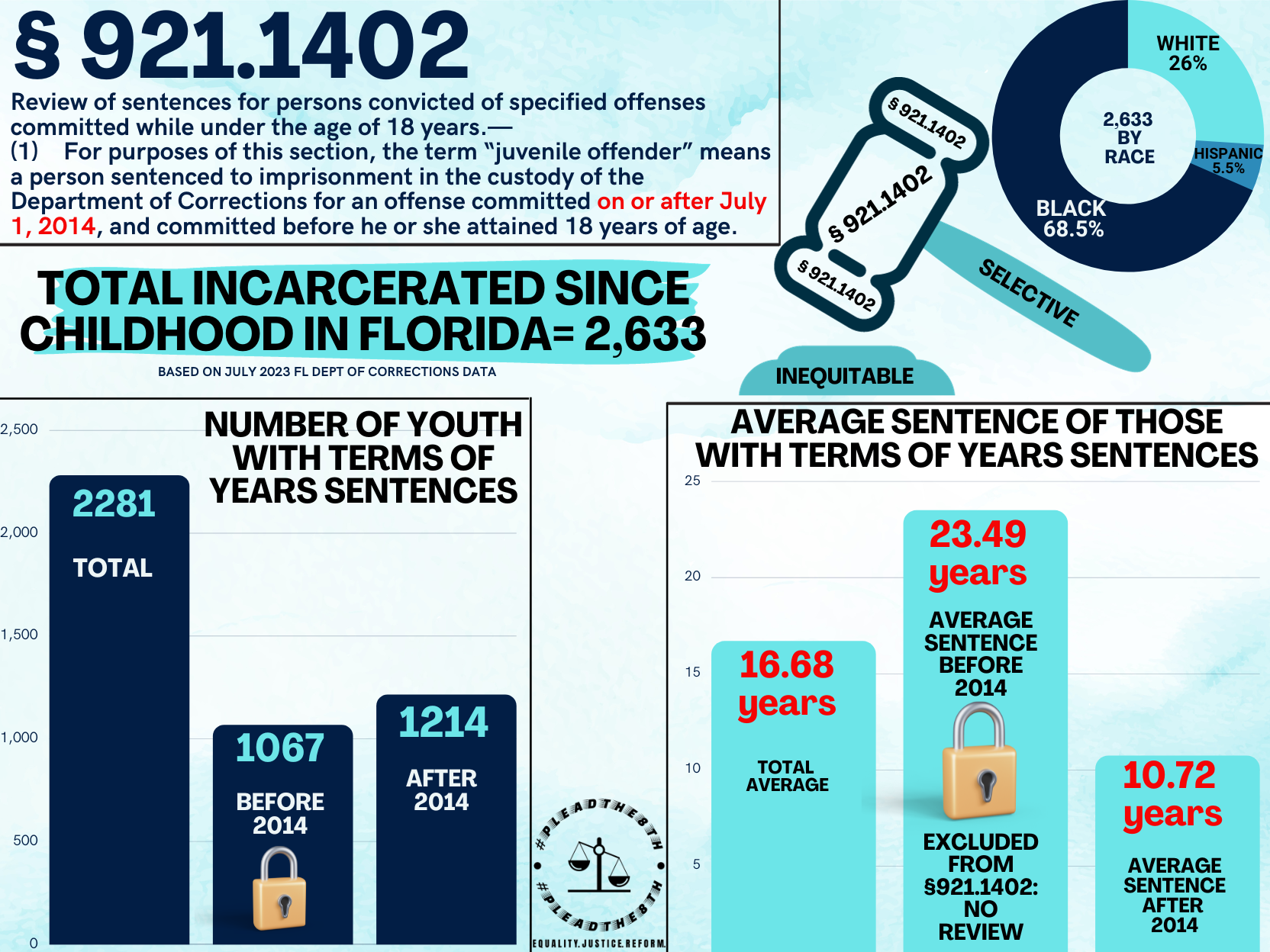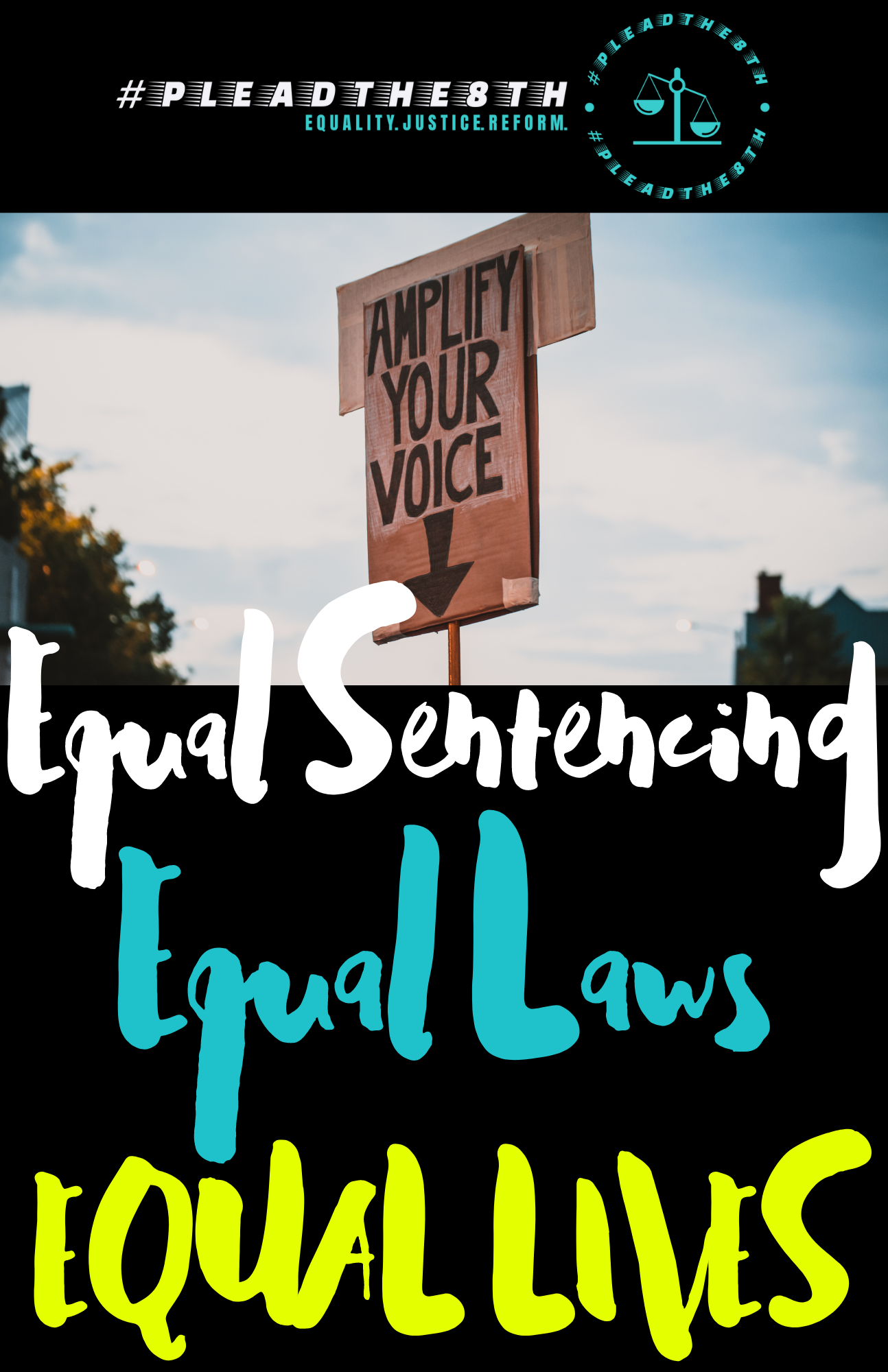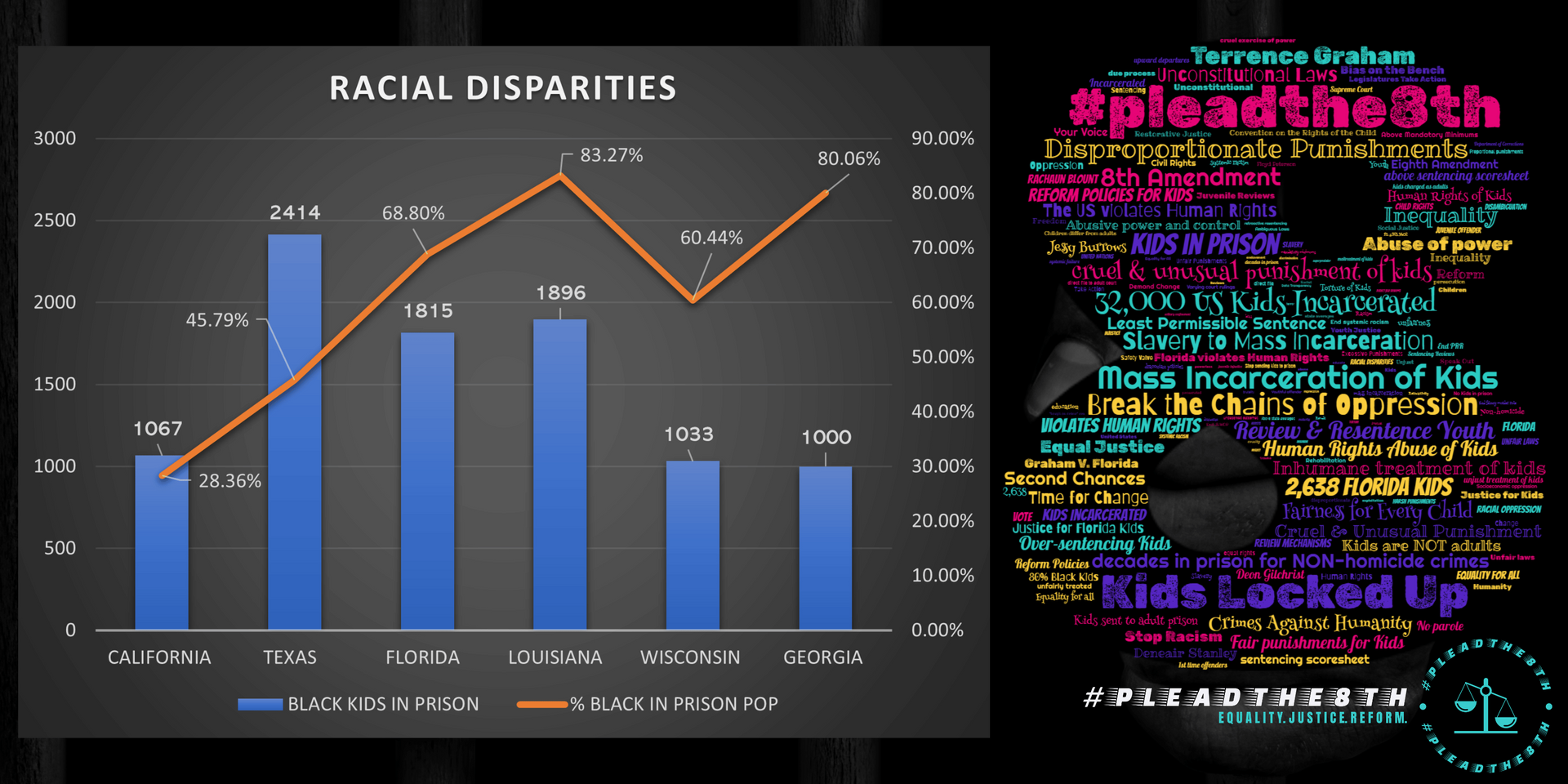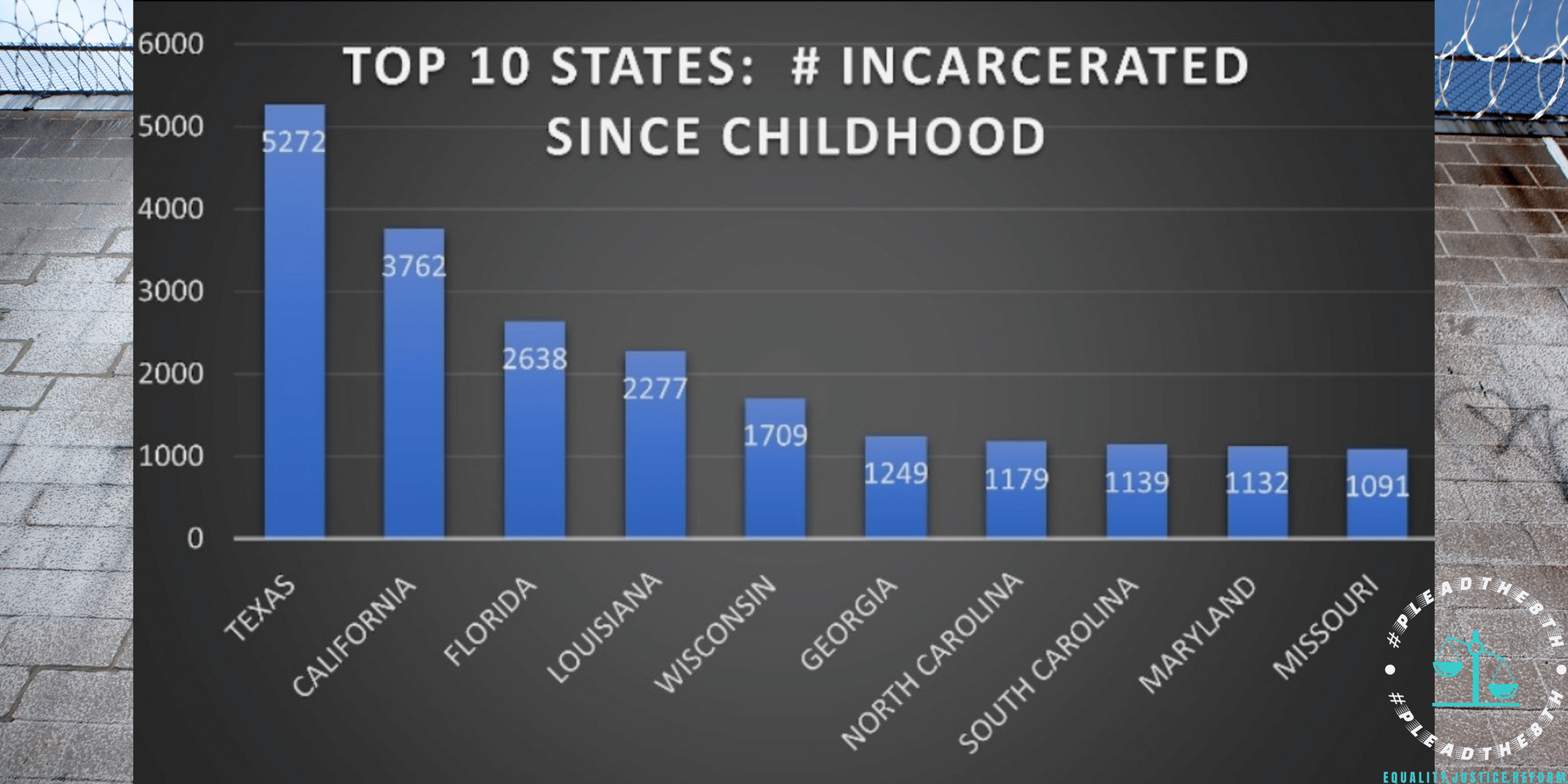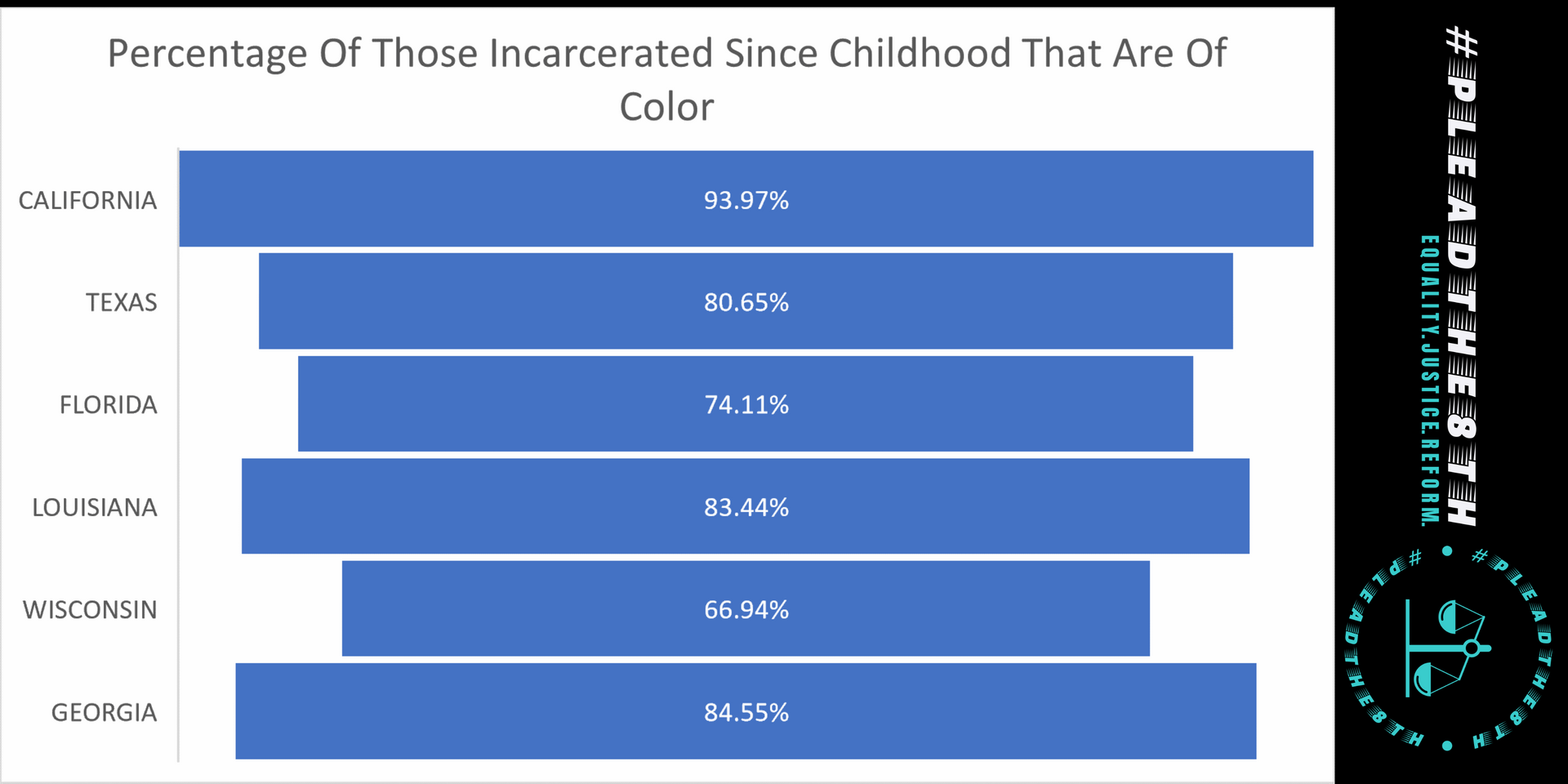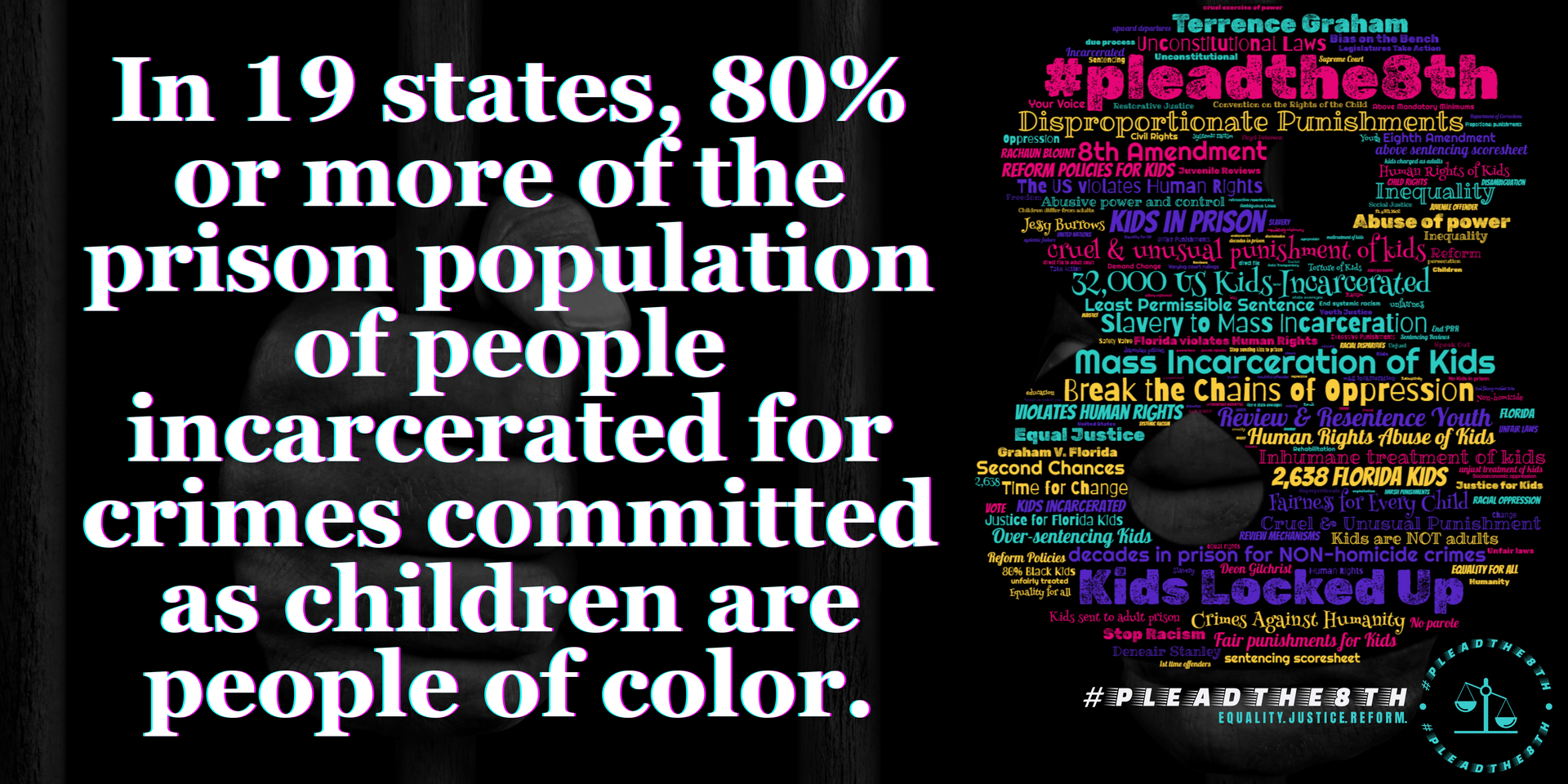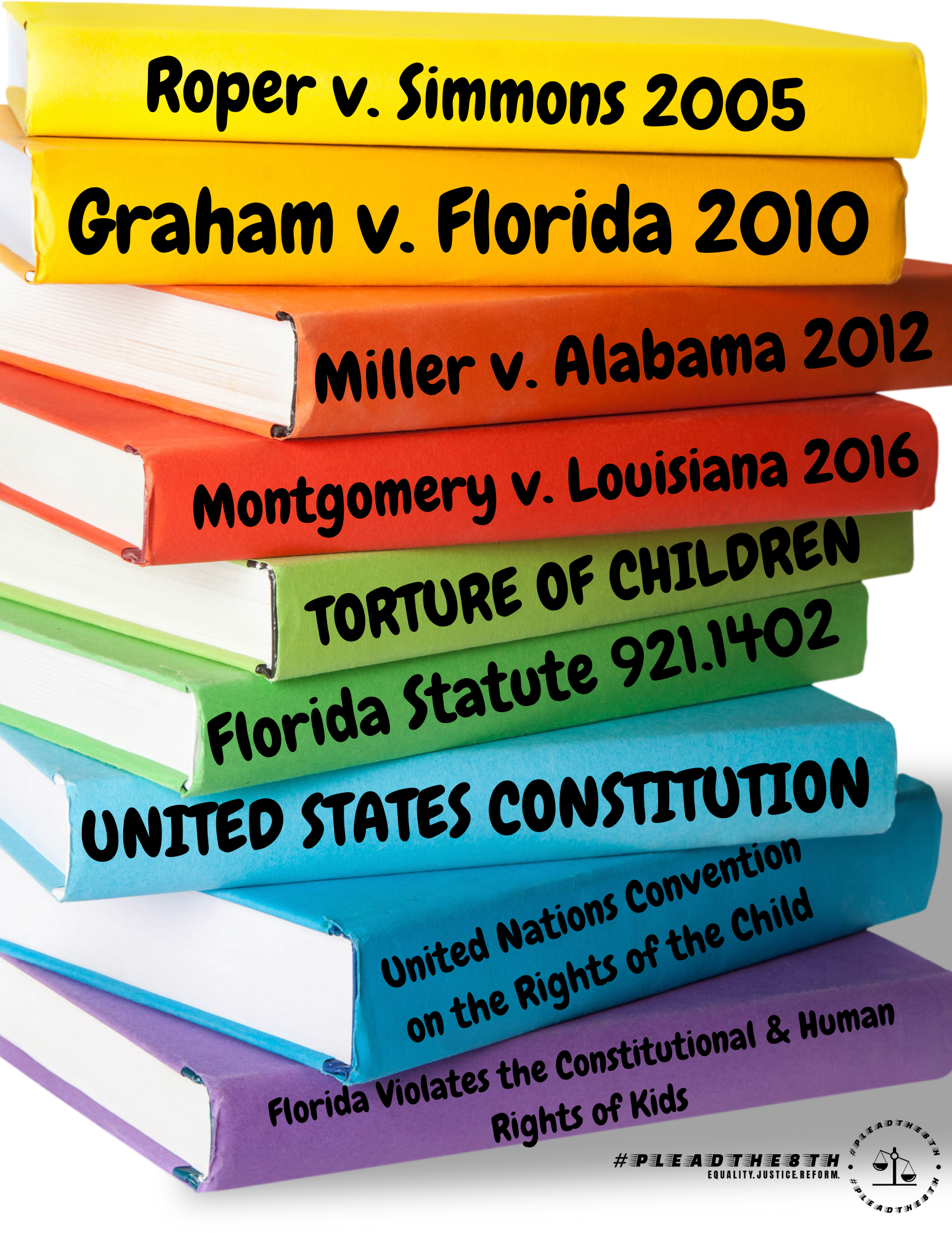Florida Youth Incarceration
Here, we dissect significant issues within the juvenile justice system, spotlight discrepancies in sentencing, and advocate for necessary reforms aligned with Supreme Court precedents. Our goal is to foster a deeper understanding and prompt actionable change.
Florida ranks 3rd in the country for the number of individuals incarcerated since childhood.
Florida Youth Incarceration: Key Issues
1.
Statistics: Disparities in Sentencing
Pre-and-Post 2014
Explore comprehensive data analyzing trends and disparities in juvenile sentencing within Florida, particularly focusing on the shifts following legislative reforms in 2014. This section sheds light on how these changes have influenced judicial practices and youth outcomes.
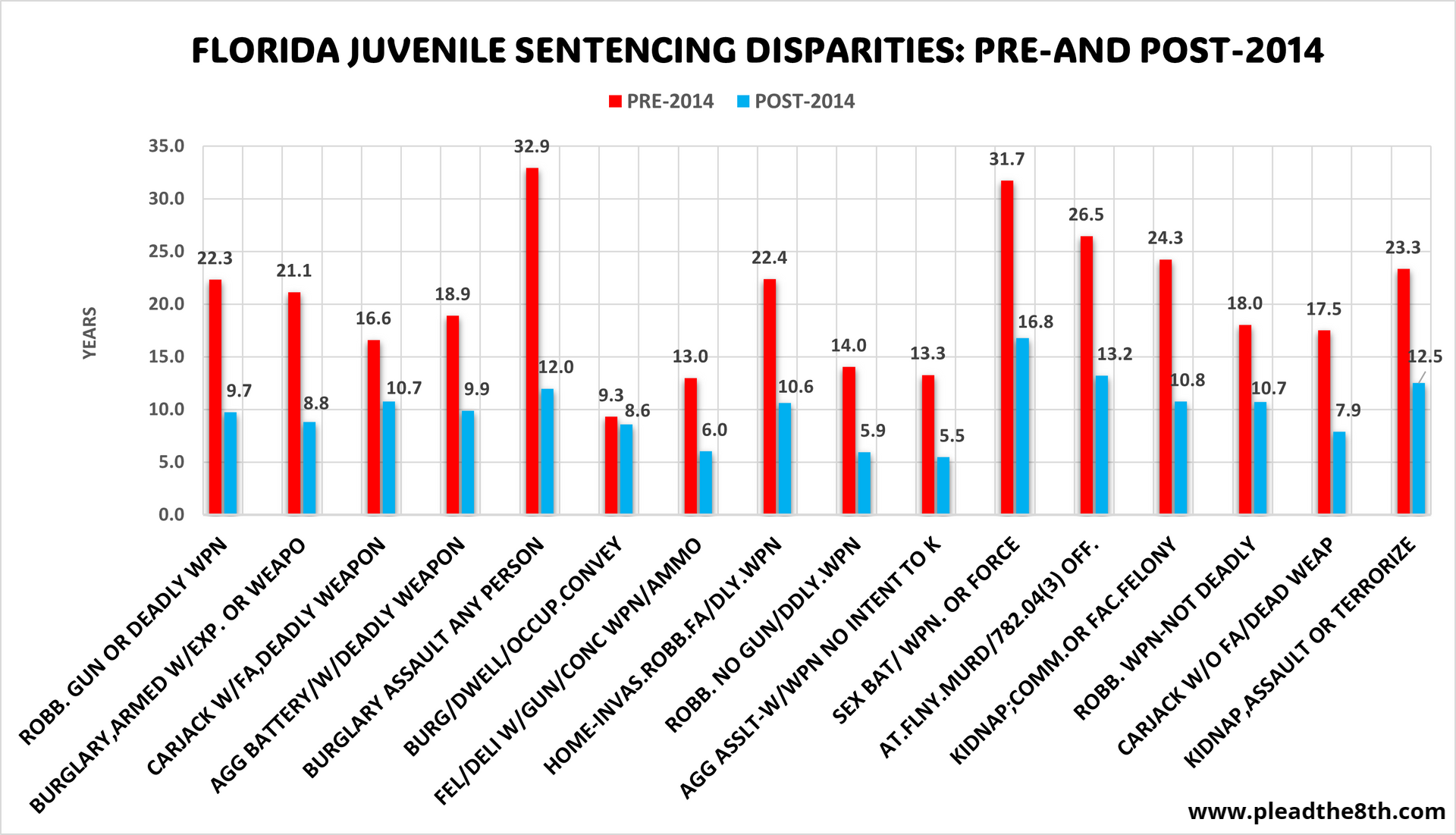
Florida's juvenile offender review laws are selective and inequitable, allowing only a subset of young offenders the opportunity for review hearings.
2.
Legal Ambiguities in Florida Statute 921.1402
Delve into the complexities of Florida Statute §921.1402, uncovering the legal and practical issues that arise from its application. This section discusses multiple court decisions and their implications for juvenile justice in Florida. Understand the critical issues stemming from the statute's language that affect legal clarity and judicial consistency.
Read More ▶
Of the over 32,000 incarcerated nationwide since childhood, 2,632 are in Florida.
3.
Court Decisions on Statute 921.1402
Review a comprehensive list of court cases that have interpreted and applied Florida Statute 921.1402. This section provides detailed case studies highlighting how various Florida courts have dealt with the statute, showcasing the outcomes and the judicial reasoning behind each decision.
4.
Above Sentencing Guidelines and Harsh Punishments on Children
Examine real-world examples where juvenile sentencing has significantly exceeded guidelines, highlighting the critical need for reforms aligned with developmental science and rehabilitation principles.
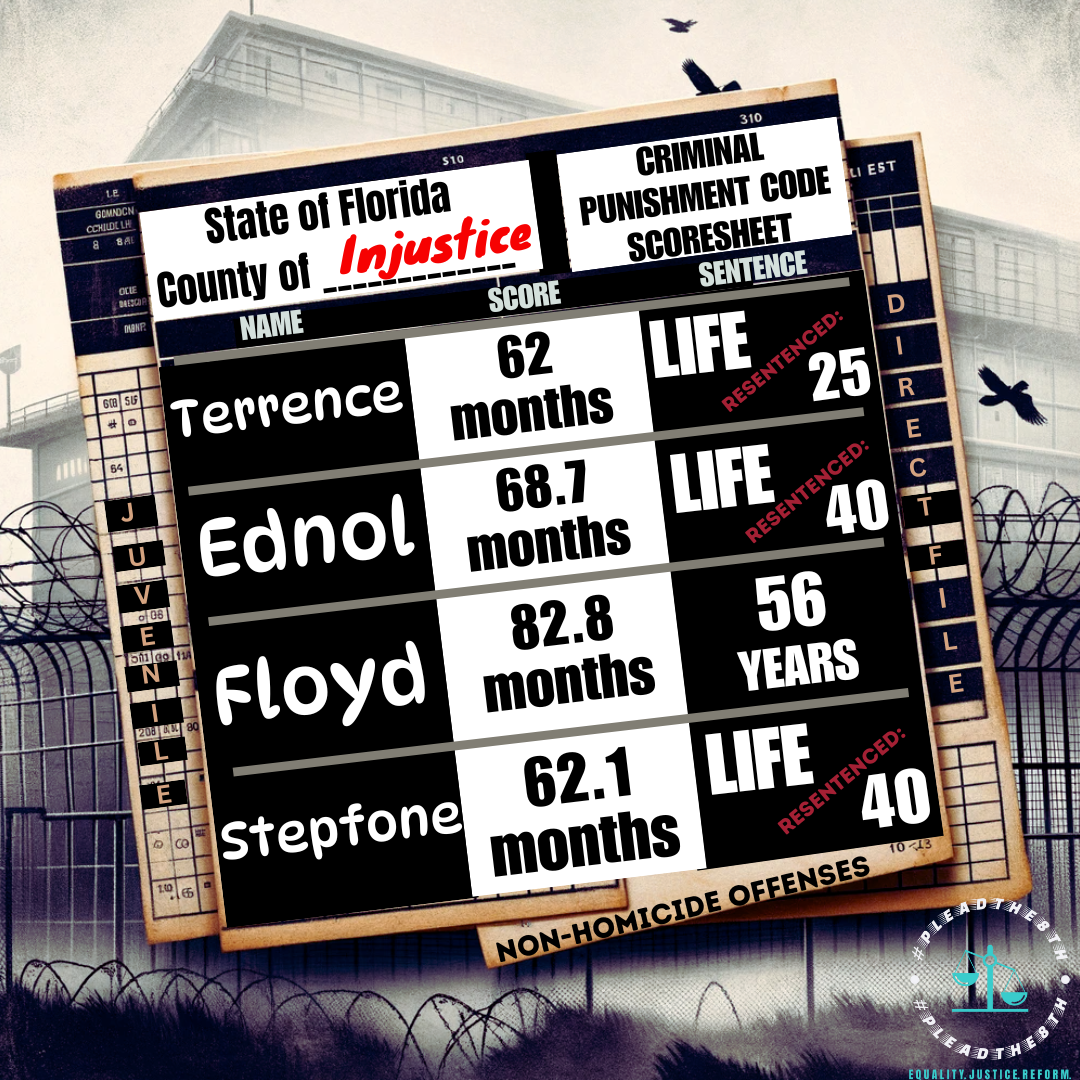
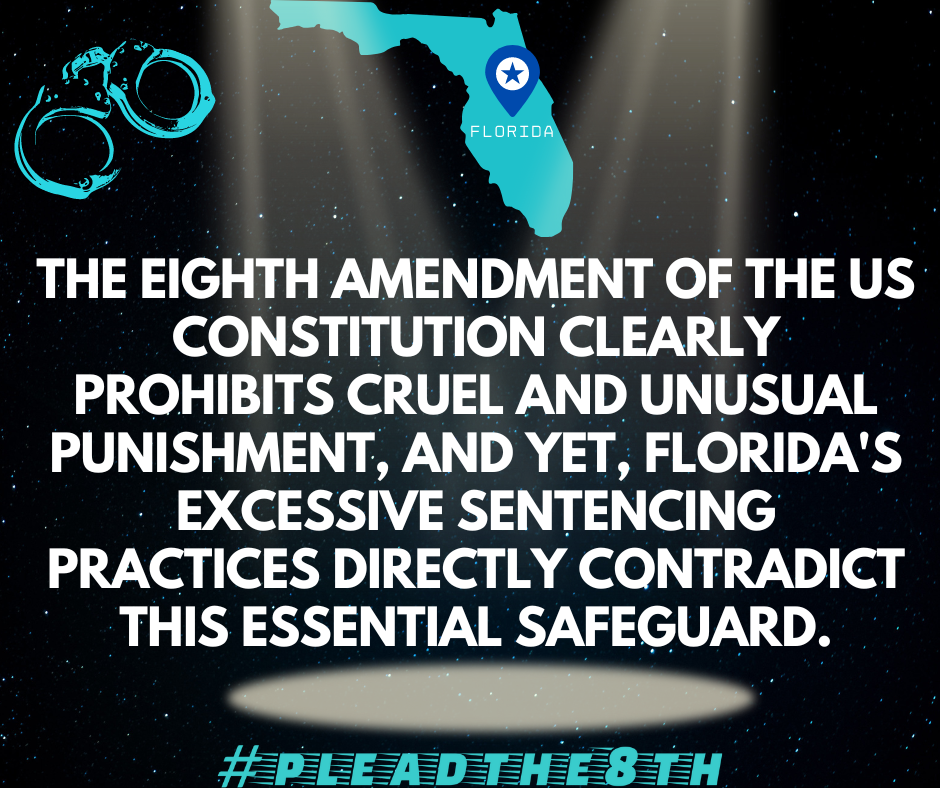
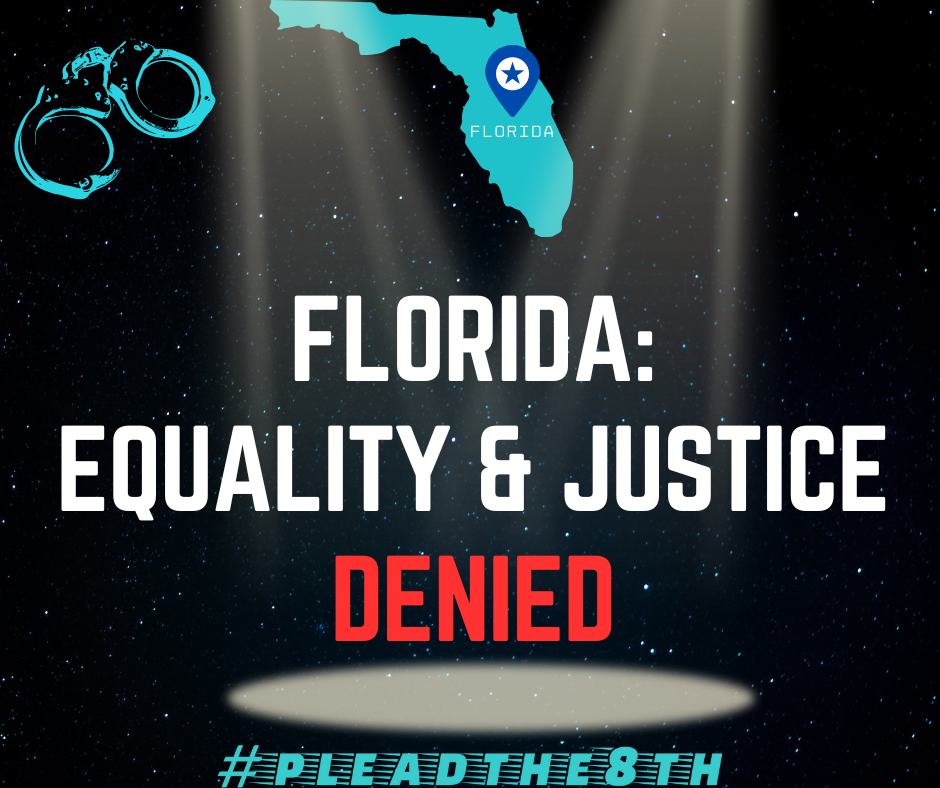
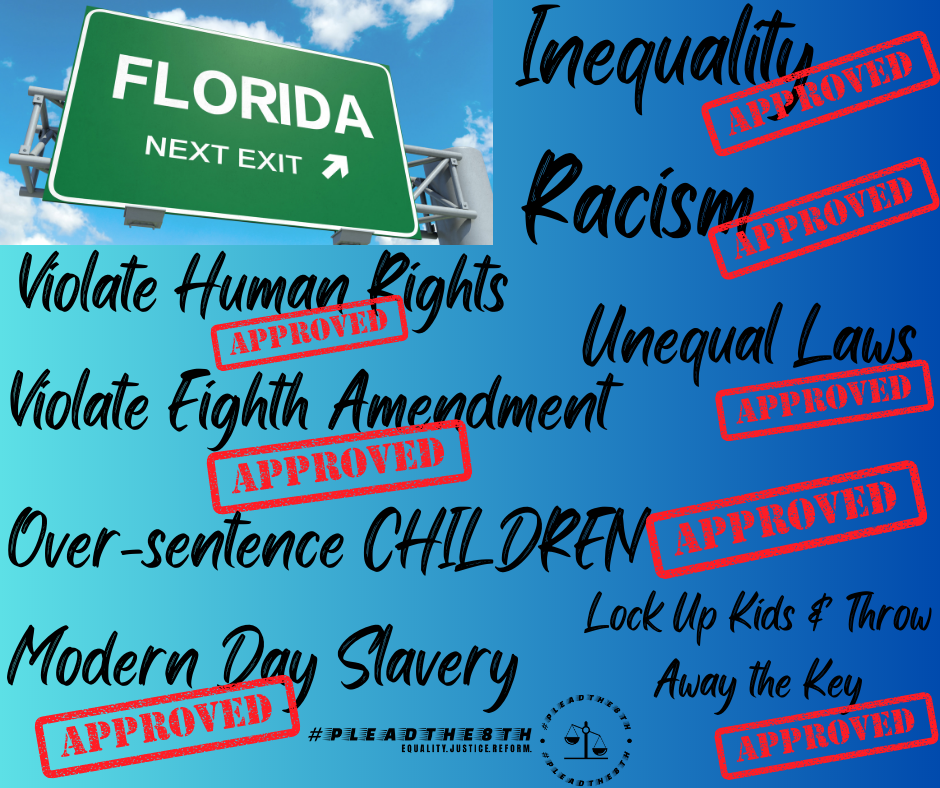
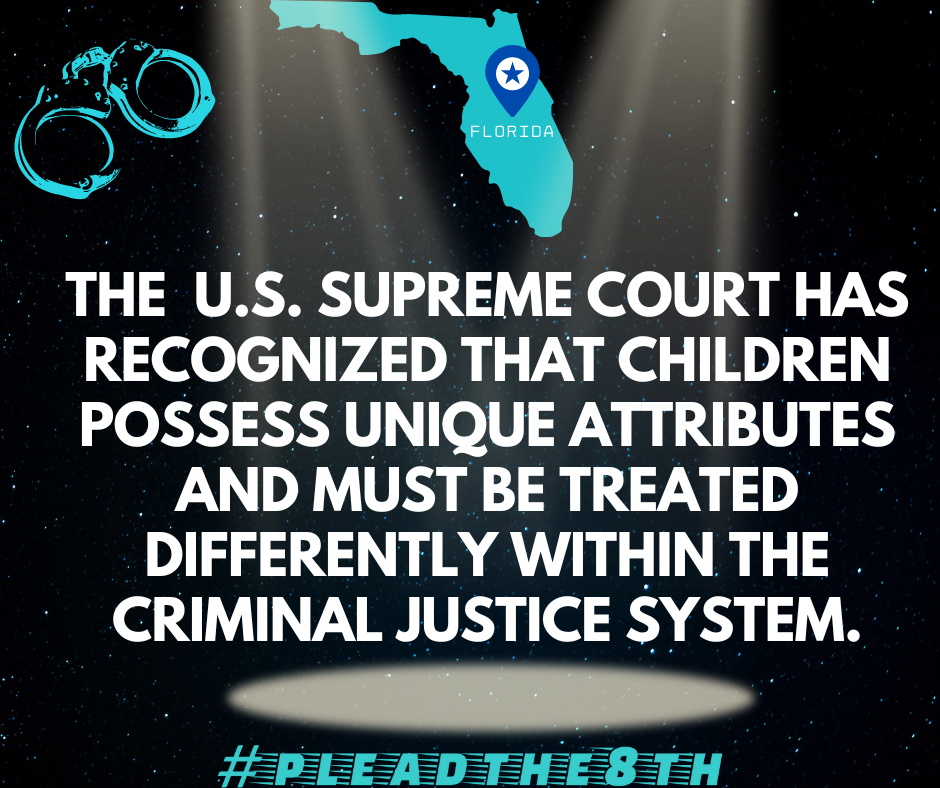
5.
U.S. Supreme Court Precedents on Juvenile Sentencing
Review the pivotal U.S. Supreme Court rulings that have reshaped juvenile sentencing nationwide. Understand the legal precedents that continue to impact the philosophy and implementation of juvenile corrections in Florida and beyond.
6.
Graham v. Florida
The landmark case of Graham v. Florida holds a pivotal place in the mission of PleadThe8th, underscoring our relentless pursuit of justice and equitable treatment in the juvenile justice system. In 2010, the U.S. Supreme Court made a transformative decision in this case, ruling that sentencing juvenile offenders to life imprisonment without parole for non-homicide offenses violates the Eighth Amendment's prohibition against cruel and unusual punishments. This ruling not only highlighted the distinct cognitive and psychological development traits of juveniles but also acknowledged their greater capacity for change, reform, and rehabilitation.
Read More
About Terrence Graham
▶
excessive punishments
Youth are subjected to disproportionate punishments above mandatory minimums, scoresheet totals, and state averages. Is it okay to sentence a child to 20+ years for a crime that should be 5 years?
No Review Mechanism
All youth do not have a review mechanisms. How is it fair that some are allowed, but others are not? Didn't the US Supreme Court base their decisions in Graham/Miller on review mechanisms?
Courts change rulings
Is it okay that Appellate courts and the FL Supreme Court rule in favor of term sentences being reviewable for several years allowing review hearings, but then changes the ruling years later?
Ambiguous Laws
Is it okay that one law states that an offender under 18 is entitled to review, but then the pursuant law excludes them because their crime was committed before the effective date of that law? s.921.1402.
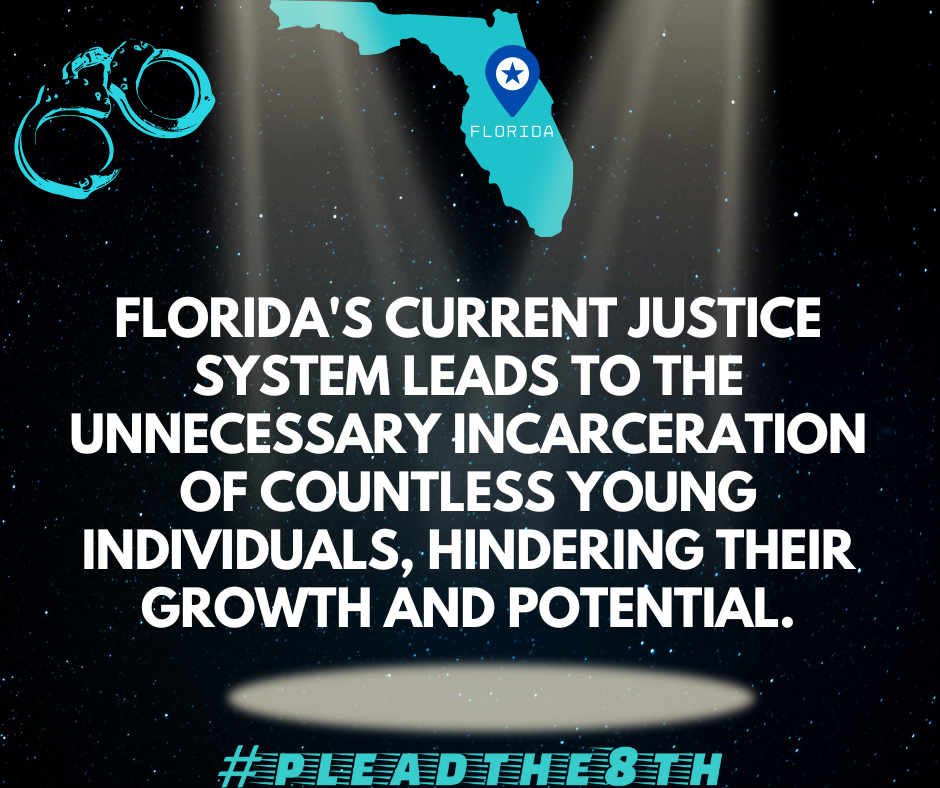
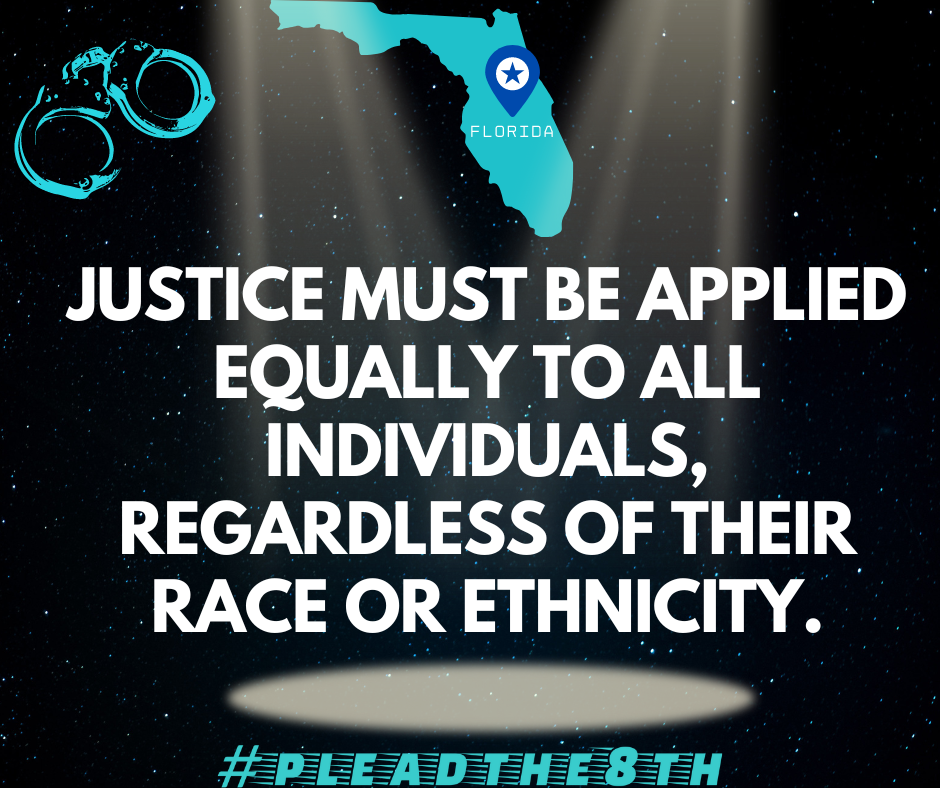
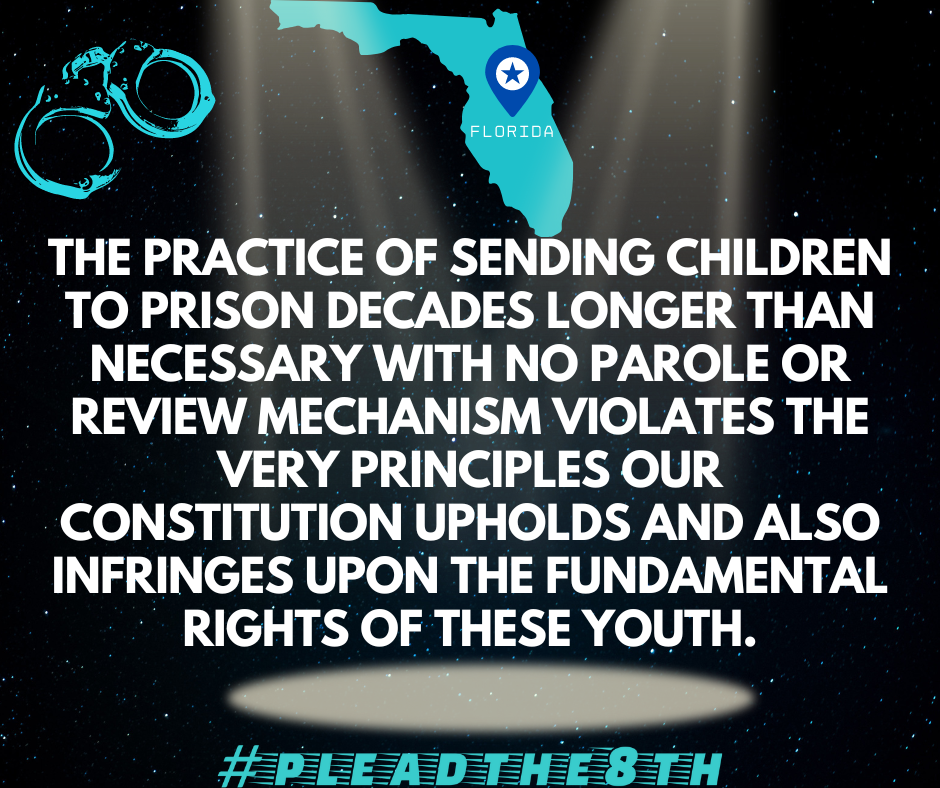
Your Support Matters
A gift today helps us fight for kids without a voice.
PleadThe8th
is a qualified 501(c)(3) tax-exempt organization and donations are tax-deductible to the full extent allowed under the law.
Follow us on Social Media!
Tweet & Share to remind those in power that we demand justice and equality.
